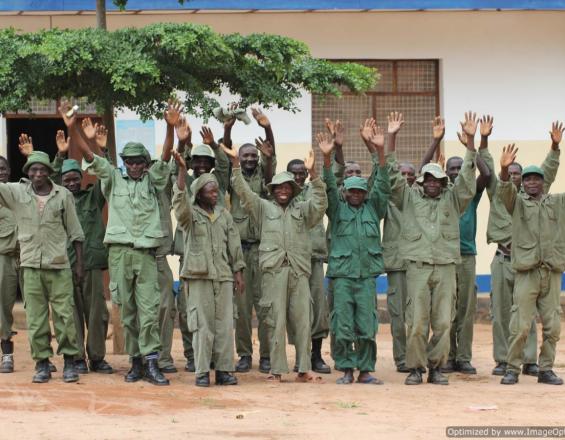Involving local communities in anti-poaching patrols

The Ruvuma Elephant Project addresses the dramatic decline in elephant numbers due to poaching in an area spanning 2.5 mio. hectares including the Selous-Niassa Wildlife Corridor, on the Tanzanian side of the border. It acknowledges the socio-economic causes of poaching while increasing patrolling capacity, by involving local communities in PA management. Activities include joint patrol teams, financial incentives, education and training.
Context
Challenges addressed
Location
Impacts
• Since the initiation of the project, measurable results have included: the seizure of 2,181 snares, 17,037 illegal timber (pieces), and 191 elephant tusks as well as 836 firearms; 1,552 rounds of ammunition, 6 vehicles, 16 motorcycles and the arrest of 601 people • Interventions implemented include providing direct assistance to local farmers for livelihood protection (for example, human-elephant conflict mitigation), supporting income-generating activities for the Wildlife Management Area communities (such as chilli pepper farming and beekeeping), and implementing a syllabus on conservation education in local schools • More than 85% of all arrests and seizures of illegal weapons and ivory has been achieved with the collaboration of, and information received from, members of the local communities. Most arrests have occurred outside of the protected areas and have been made before additional illegal wildlife killing has occurred within the REP area. The number of people arrested in the field through routine patrols decreased dramatically from the first year of the Project, as has the discovery of carcasses and ivory
